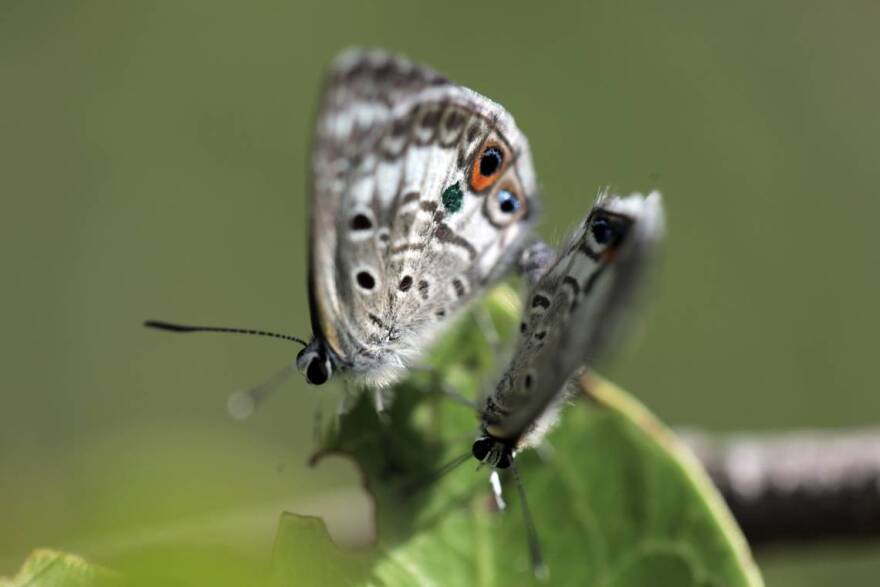One crisp, sunny afternoon this month, grad student Sarah Steele Cabrera headed down a sandy path at Long Key State Park carrying two nylon bug containers.
Cabrera had scouted out the park, a former fishing camp fashioned into an early version of glamping by railroad tycoon Henry Flagler and now a tangle of gumbo limbo, poisonwood and prickly nickerbean, and found a perfect spot to release the contents of the boxes: 60 newly hatched Miami blue butterflies, among the rarest insects in North America, and maybe the world.
Cabrera’s butterflies, bred at a University of Florida lab in Gainesville and shipped overnight by FedEx two days earlier, are part of the latest effort in a years-long rescue mission that have made the butterfly one of the more high profile endangered bugs. It even has its own limited-edition beer.
Only decades ago, collectors considered the butterflies a trash specimen because they were so plentiful. Peterson’s 1951 Field Guide described them as common. But today just two wild colonies can be found on remote islands west of Key West, surrounded by busy shipping lanes potentially carrying exotic enemies and in the middle of hurricane alley. So Cabrera’s mission is not without urgency.
Read more from our news partner, The Miami Herald.





